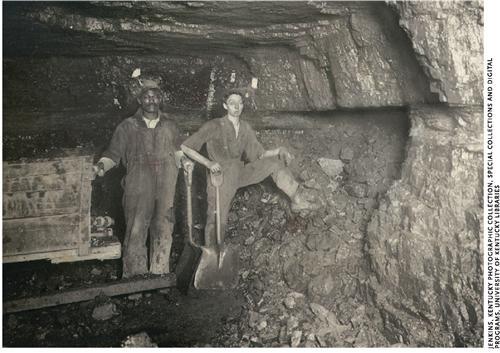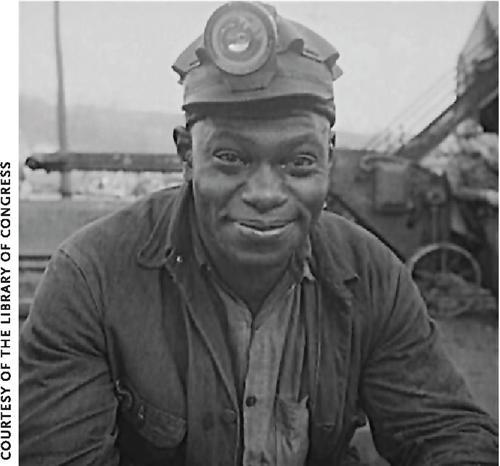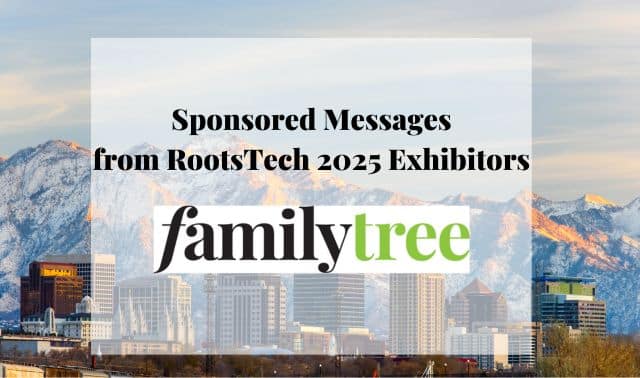For more than 10 years, genealogist Tim Pinnick has devoted himself to an underground project: researching the lives of African-American coal miners. As his efforts gain critical momentum, all the men he’s studying seem to be coming to the surface.
Starting with his own ancestors, Pinnick began compiling names of black coal miners in the early 1990s. The more miners he uncovers, the more keep turning up. One big reason for the information explosion is the California Slavery Era Insurance Registry <www.insurance.ca.gov/0100-consumers/0300-public-programs>. A few of today’s largest insurance companies still have records of slaveholders’ policies, purchased to offset the potential financial loss a slave’s injury or death would cause. Since 2001, California legislation has required insurers operating in the state to report that information. Most of it was released in 2002, and Pinnick estimates miners account for 20 percent of the records.
Pinnick’s list, available on his African-American Coal Miner Information Center Web site <freepages.genealogy.rootsweb.com/-blackcoalminers>, holds more than 1,000 names-but he says his research indicates tens of thousands more miners are out there. In 2004, Pinnick launched the bimonthly African American Coal Mining Heritage newsletter; now he’s seeking grants to recruit outside help for maintaining the growing database to keep pace with his discoveries.
The miners’ importance to their modern descendants belies their relatively small numbers: Pinnick estimates 40,000 African-Americans performed mine-related work in 1910. The profession’s unpredictable nature led many black miners to travel from state to state looking for work, particularly after the Civil War. They often returned home for their families, setting off chain migrations. These men led harrowing lives: Mine owners recruited black workers to break strikes, putting them squarely in the middle of emotionally charged and sometimes dangerous feuds — as if the backbreaking labor itself weren’t dangerous enough.
A Series of Discoveries
A PBS series premiering this February highlights the ancestries of African-American luminaries-among them ubiquitous entertainer Whoopi Goldberg, astronaut Mae Jemison and crooner Quincy Jones. Much-honored Harvard professor Henry Louis Gates serves as host and lead investigator.
In “African American Lives,” Gates draws on the stars’ family stories, records, photographs, historical information and DNA analysis to trace their roots back through the 1900s, Reconstruction, the Civil War, Colonial days and the early slave trade period. Finally, he and one of the show’s celebrity subjects follow the genealogical evidence to that as-yet-undisclosed star’s possible ancestral origins on the western coast of Africa. In the process, the show explains how historical events such as Jim Crow segregation and the post-WWI “Great Migration” have shaped modern African-American families.
To help with the research legwork, the series employs a supporting cast of expert historians and genealogists, as well as staffers from online database behemoth Ancestry.com <Ancestry.com > and genetic-genealogy firm African Ancestry <www.africanancestry.com>.
So you haven’t had your 15 minutes yet? Although “African American Lives” focuses on famous folk, its producers hope average Joes who watch it will pick up tips for their own roots research. Series host Gates also wants to supply viewers with a big dose of inspiration. “Slavery deprived African-Americans of their historical and familial memory,” he says. “This series is an attempt to restore that memory-on both sides of the Atlantic.”
Visit the show’s Web site <www.pbs.org/aalives> for a beginner’s guide to tracing your family tree. Catch the “African American Lives” premiere in most locales Feb. 1 and 8 on PBS-check your local listings or go to the Web site for times and channels.
Pinnick recalls a Uniontown, Pa., coal miner named Robert Royal who received a Carnegie Medal for heroism during a 1920s mine cave-in. Although his back was fractured in two places, Royal managed to pull himself from beneath a pile of slate. He then rescued a white co-worker whose legs, both broken, were trapped under a boulder.
That colorful history is part of what keeps Pinnick dedicated to the cause and eager to share his knowledge with family historians. “Other people are going to have to do 10 years of research to get to where I am right now,” he says. “There must be tons of people out there who are descended from a coal miner and could benefit from this.”
— Brad Crawford
Worldly Wide Web
Browse these Internet sites to learn more about your African-American ancestors:
? African-American Genealogy Group
? The African-American Mosaic
<www.loc.gov/exhibits/african>
? African-American Research
<archives.gov/genealogy/heritage/african-american>
? AfriGeneas
? Afro-Louisiana History and Genealogy
? Christine’s Genealogy Web Site
? Cyndi’s List: African-American
<www.cyndislist.com/african.htm>
? The Freedmen’s Bureau Online
? Homecoming
? In Motion: The African-American Migration Experience




